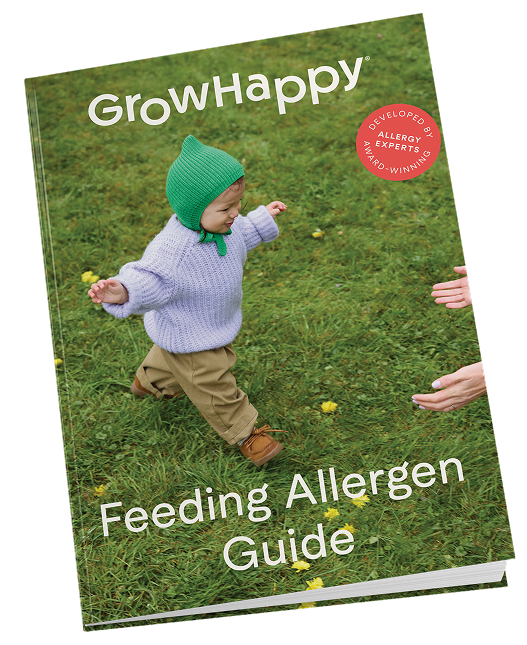How to be Prepared
Allergic reactions are a common concern. Thankfully when it comes to early allergen introduction, they are rare. The first year of life is the safest time to introduce common allergens, as reactions are milder in infants and often consist of simple hives or vomiting. That said, its always better to be overprepared and have medication on hand – allergy experts recommend antihistamines such as Children’s Zyrtec (Cetirizine) because it is fast-acting and non-drowsy. Most allergic reactions occur within 30 minutes of eating, and nearly all immediate-type (IgE-mediated) allergic reactions are within two hours of consuming the food. If you do see signs of an allergic reaction, stop feeding the food and consult a doctor. One of the most common symptoms are hives, which look like a mosquito bite.
Know the signs
Mild to Moderate Symptoms:
-
Itching, sneezing, hives, rashes, nausea or vomiting, diarrhea or stomach pain
-
Zyrtec is often given for treatment
-
If two or more body symptoms are affected (e.g. vomiting/stomach and hives/skin), it is also considered severe.
Severe Symptoms:
-
Trouble swallowing or breathing, loss of consciousness and a weak pulse among others
-
Severe symptoms can be a sign of life-threatening anaphylaxis and require immediate treatment with epinephrine.
-
In the case of severe symptoms, administer an EpiPen if available and go to the nearest Emergency Room. Zyrtec may also be taken if the child is able.
-
Severe reactions in babies less than one are rare, which is why the first year of life is the safest time to introduce common allergens.
If you do see signs of an allergic reaction, stop feeding the food and consult a doctor.









